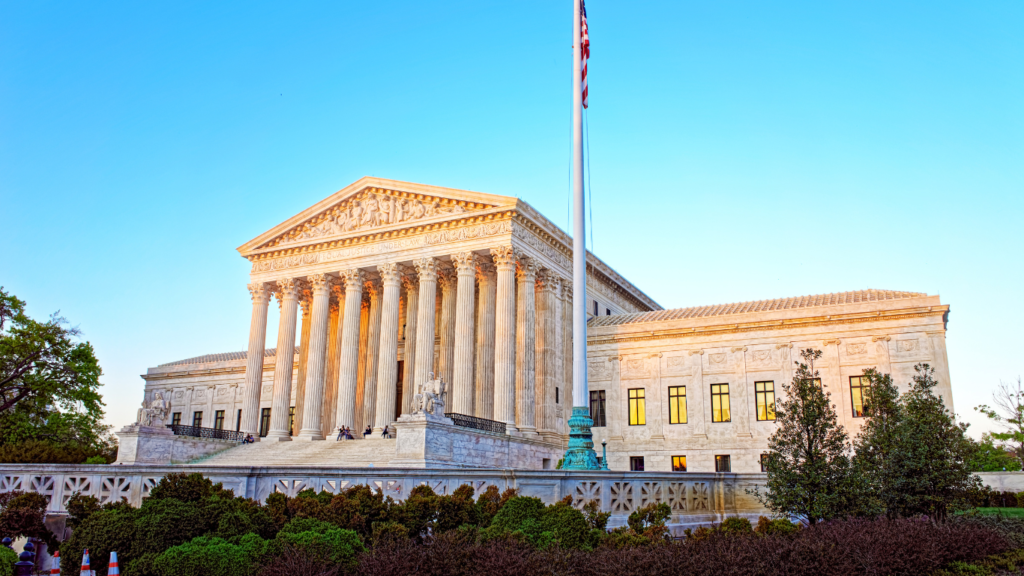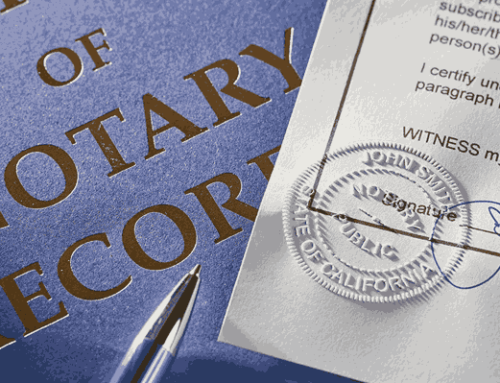One of the key vehicles for lawyers to stay abreast of the latest developments and maintain their professional edge is Continuing Legal Education (CLE). Continuing Legal Education, commonly referred to as CLE, is a systematic and structured approach to lifelong learning within the legal field. Unlike the foundational education obtained in law school, CLE serves as a mechanism for lawyers to update their skills, stay informed about legal trends, and adapt to the dynamic nature of the legal profession.
At its core, CLE is a commitment to professional growth, ensuring that legal practitioners remain well-equipped to handle the challenges presented by an ever-changing legal landscape. It is not merely a set of mandatory courses; rather, it is a culture of continuous improvement that permeates the legal community.
This blog will help you to gain insights and understanding its significance for lawyers, and gaining insights into the specific requirements that shape this ongoing educational commitment.
Understanding CLE Requirements
Legal practitioners navigate a complex tapestry of regulations when it comes to Continuing Legal Education (CLE). The intricacies of CLE requirements are not universal; rather, they are finely woven into the fabric of each jurisdiction’s legal framework.
Variations in CLE Regulations Across Jurisdictions
- The adage “all law is local” rings particularly true when it comes to CLE. Each state is endowed with the authority to determine its unique set of CLE regulations. These variations may include differences in the number of required credits, reporting periods, and even the types of acceptable CLE activities.
- Legal practitioners operating in multiple jurisdictions must meticulously navigate these variances, ensuring compliance with the specific rules governing each state in which they practice. The ability to discern and adapt to these nuances is crucial for lawyers to maintain their licenses and uphold their professional obligations.
State Bar Associations and Their Role in CLE

- State Bar Associations play a pivotal role in the administration and oversight of CLE programs. These entities are tasked with not only establishing the overarching guidelines but also accrediting CLE providers and courses. By assuming this role, State Bar Associations ensure that the educational content offered aligns with the standards and requirements set forth by each jurisdiction.
- Lawyers often turn to their respective State Bar Associations for guidance on navigating CLE requirements. These associations serve as valuable resources, providing information on approved courses, upcoming events, and changes to CLE regulations. Understanding the symbiotic relationship between legal practitioners and State Bar Associations is paramount in fostering a culture of continuous learning within the legal community.
Core Subjects vs. Elective Subjects
- CLE requirements often include a distinction between core subjects and elective subjects. Core subjects encompass fundamental legal topics that provide a broad understanding of the law. These mandatory areas of study ensure that lawyers maintain a foundational knowledge base.
- On the other hand, elective subjects offer legal practitioners the flexibility to delve into areas of personal or professional interest. This duality allows lawyers to tailor their CLE experiences to align with their unique career trajectories, fostering a diverse and well-rounded skill set.
Specialty Credits for Specific Practice Areas
Recognizing the specialized nature of legal practice, many jurisdictions mandate lawyers to accrue credits in specific practice areas. These specialty credits are designed to ensure that legal practitioners possess in-depth knowledge and expertise in their chosen fields.
Compliance and Reporting
Ensuring compliance with Continuing Legal Education (CLE) requirements goes beyond merely participating in courses; it involves a systematic approach to tracking credits and adhering to reporting deadlines.
Approved CLE Providers
Legal practitioners must be vigilant in selecting CLE activities from approved providers. State Bar Associations play a crucial role in accrediting these providers to ensure the educational content meets the requisite standards.
Lawyers should routinely check the list of approved CLE providers published by their respective State Bar Associations. This verification process is essential to guarantee that the credits earned will count towards meeting the jurisdiction’s requirements. Opting for courses from reputable providers not only ensures compliance but also enhances the overall quality of the learning experience.
Accreditation of Courses
In addition to approved providers, lawyers must verify the accreditation status of individual courses. Accredited courses align with the specific criteria set by State Bar Associations, assuring legal practitioners that the content is relevant, substantive, and contributes meaningfully to their professional development.
Before enrolling in any CLE activity, lawyers should confirm its accreditation status and the number of credits it offers. This due diligence minimizes the risk of investing time and resources in courses that may not contribute towards fulfilling CLE requirements.
Annual vs. Multi-Year Reporting Cycles
Reporting cycles vary across jurisdictions, with some requiring annual submissions and others adopting multi-year cycles. Lawyers must be well-acquainted with the reporting timeline established by their State Bar Associations to ensure timely submission of their CLE credits.
Annual reporting cycles necessitate more frequent attention to CLE requirements, prompting legal practitioners to stay engaged in ongoing learning throughout the year. In contrast, multi-year cycles offer a more extended timeframe for accumulation but require careful planning to meet the cumulative credit targets within the stipulated period.
Consequences of Non-Compliance
Non-compliance with CLE requirements can have serious consequences for legal practitioners. These repercussions may include fines, disciplinary actions, or even suspension of licensure. State Bar Associations are vested with the authority to enforce these consequences, emphasizing the gravity of maintaining a proactive approach to CLE compliance.
Lawyers facing challenges in meeting their CLE obligations should proactively communicate with their State Bar Associations. Seeking guidance, exploring alternative educational opportunities, or requesting extensions in cases of extenuating circumstances can help mitigate the potential consequences of non-compliance.
Available CLE Formats
Continuing Legal Education (CLE) has evolved beyond traditional classroom settings, offering legal practitioners a myriad of formats to fulfill their educational requirements.
In-Person Seminars and Conferences
- Networking Opportunities: In-person events provide valuable networking opportunities, allowing lawyers to connect with peers, experts, and potential mentors.
- Interactive Discussions: Seminars and conferences often facilitate dynamic discussions, enabling participants to engage with the material and each other.
- Time and Travel Constraints: Attending in-person events may pose challenges due to time commitments and the need for travel, particularly for legal practitioners with busy schedules.
- Limited Accessibility: Geographical limitations may restrict access to certain seminars and conferences, making it challenging for lawyers in remote locations to participate.
Online and Self-Paced Courses
- Flexibility: Online courses provide legal practitioners the flexibility to learn at their own pace, fitting CLE activities into their schedules without the constraints of fixed class times.
- Accessibility: Lawyers can access a wide range of courses from anywhere with an internet connection, breaking down geographical barriers.
Accredited Online Platforms:

- Quality Assurance: Reputable online platforms collaborate with State Bar Associations to ensure courses meet accreditation standards.
- Diverse Content: These platforms offer a diverse range of courses, allowing legal practitioners to explore niche areas of law.
- Self-Motivation: Lawyers must be self-motivated to complete online courses, as the absence of a structured class environment requires a proactive approach to learning.
Webinars and Virtual Events
- Real-Time Interaction: Webinars facilitate real-time interaction between participants and presenters, allowing for questions, discussions, and engagement.
- Cost-Efficient: Virtual events often eliminate travel and accommodation costs, making them a more cost-efficient option for legal practitioners.
- Technical Challenges: Participants must navigate potential technical issues, such as internet connectivity problems or platform-related issues.
- Scheduling Conflicts: Virtual events still require dedicated time, and lawyers must manage potential scheduling conflicts to ensure active participation.
Strategies for Meeting CLE Requirements
Continuing Legal Education (CLE) requirements demand strategic planning and a proactive approach to ensure legal practitioners not only meet the mandatory standards but also derive maximum value from their educational endeavors. In this section, we’ll explore effective strategies for navigating CLE requirements with finesse.
- Creating a CLE Compliance Plan
Develop a Calendar: Legal practitioners should create a comprehensive calendar that outlines their reporting cycles, deadlines, and specific CLE requirements. This calendar serves as a visual roadmap, helping lawyers stay organized and plan their educational activities effectively.
Identify Areas of Focus: Understanding the core and elective subjects required by their jurisdiction, lawyers can strategically identify areas of focus. This proactive approach ensures a well-rounded CLE experience while meeting the mandatory criteria.
- Budgeting Time and Resources
Prioritize Learning Objectives: Lawyers should prioritize their learning objectives based on the requirements of their practice areas and personal career goals. This prioritization ensures that time and resources are allocated efficiently.
Allocate Resources: Whether it’s time, finances, or both, legal practitioners must allocate resources wisely. This may involve budgeting for course fees, travel expenses for in-person events, or investing in online platforms.
- Combining Different Formats and Subjects
Embrace Diversity: To enhance the overall learning experience, legal practitioners should embrace a diverse range of CLE activities. This may involve attending in-person seminars, engaging in online courses, and participating in virtual events.
Mix Core and Specialty Credits: Strategically combining core and specialty credits allows lawyers to meet the mandatory requirements while delving deeper into their specific practice areas. This not only satisfies compliance but also contributes to professional growth.
Staying Informed About Changes in CLE Regulations
- Regularly Check for Updates: CLE regulations are subject to change, and legal practitioners must stay informed about any updates or amendments. State Bar Associations often communicate these changes through newsletters, websites, and official announcements.
- Subscribe to Notifications: Lawyers can subscribe to notifications or newsletters from their State Bar Associations to receive timely updates. Being proactive in staying informed prevents last-minute scrambling to adjust compliance strategies.
- Seek Guidance: If in doubt about specific regulations, lawyers should not hesitate to seek guidance from their State Bar Associations. Proactively clarifying any uncertainties ensures a smoother journey toward meeting CLE requirements.
Summing Up :
As legal professionals conclude this journey through the intricacies of CLE, the key takeaway is the importance of a proactive approach. By creating a CLE compliance plan, diversifying learning activities, staying informed about regulatory changes, and embracing the benefits of CLE beyond compliance, legal practitioners can not only fulfill their obligations but also elevate their skills, expand their networks, and propel their careers forward.





